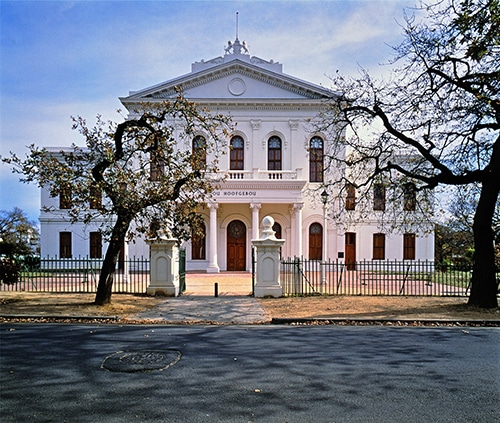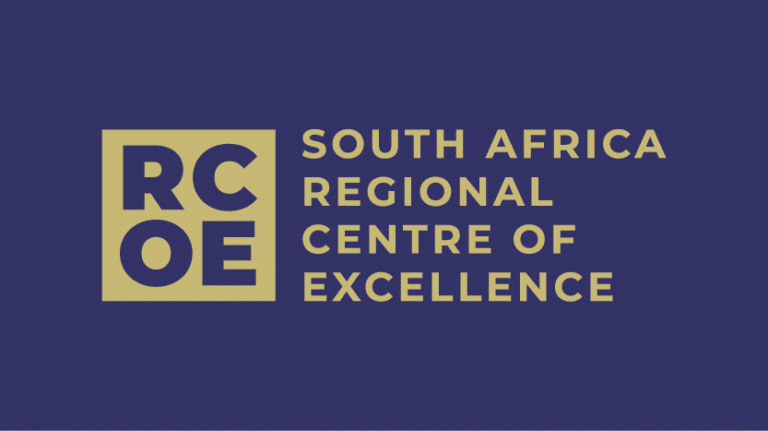Corruption by its very nature is an invisible act that has far-reaching consequences for nations, communities and people. Corrupt actors will seek to manipulate people, processes and organisations, whether private or public sector, for their own personal gain. They will aim to achieve wealth or the accumulation of assets like property or valuable possessions at the expense of people, communities or organisations.
These corrupt actors could be individuals working in private sector companies, public officials or elected politicians in the public sector. Corrupt activities could be the result of opportunistic activity between individuals in public and private sector organisations through public procurement, or anyone seeking to improve their lives through corrupt means.
The effects are wide-ranging, with the resulting impact dependent on the level of corruption. For example, low-level fraud and theft will have a far smaller impact than state capture, where public officials influence a state’s decision-making process for their own personal gain.
In the worst case scenario, corruption can lead to war, famine and human rights abuses, failing education, rising crime and failing economies. The greatest challenges are faced by people in nations where acute social and economic issues already exist, which can become breeding grounds for corruption and criminality.
Counter corruption offers a long term, sustainable solution that seeks to apply soft power to strengthen existing jurisdictions and institutions with policies, processes and procedures, supported by training and education at every level of an organisation or government department. This includes law enforcement, the military and local government.
Pavocat is at the forefront of expeditionary innovation in the field of counter corruption in both the private and public sectors, globally.
What is Corruption
Corruption can be defined as the “abuse or misuse of power entrusted to an individual through a democratic or business process solely for personal or corporate gain”.
Corruption and corrupt activities such as the procurement or provision of bribes, or trading influence, hold great potential to undermine and weaken democracy, negatively impact economic development and growth, and erode trust.
The long-term effects include poverty, inequality and human rights abuses, social division, and of course a failure to address the global climate change crisis.
It can take many forms, but in most cases, the following incidences can be expected:
- Civil servants and other public servants procure bribes in exchange for services or favour
- Politicians abusing and misusing public money for personal gain or expenditure, or appointing friends, family members or supporters, jobs or lucrative public contracts
- Businesses and corporations seeking to bribe public or other officials and politicians to win contracts
- State capture or political corruption where public officials or politicians seek to influence a state’s decision-making process to their own advantage.
Transparency International defines corruption as “the abuse of entrusted power for private gain.”
Impacts of Corruption
Corruption impacts economies, communities and people. The impacts are numerous and profound and often impact those with the least, most.
There are three key areas where corruption has the highest human impact.
Economy and Poverty
$1.26 trillion dollars is lost to corruption by developing nations annually. The loss of such vast sums of money to those nations is clear in terms of poverty and failure to innovate, industrialise economies and improve environmental credentials including energy generation. Vital finance is lost that could be used to put in place policies, support and infrastructure that encourages and delivers economic growth. Key services are often affected such as water supply, energy and health provision.
Nations known to suffer from corruption, in whatever form that may be, are not attractive to the private sector, so opportunities for investment or overseas trade are lost. Those companies or even nations that are prepared to take part in corrupt activities are likely to continue to win contracts, so corruption and the social and economic problems it causes are simply perpetuated
Raising Educational Attainment
Corruption is known to act as a barrier to educational attainment.⁵ The simple fact is that corruption makes the cost of education prohibitive, or education simply does not take place where it is intended to do so. Talent is not realised and the potential to develop people is lost. This has an impact on economies, and the fundamental right of individuals to education is weakened. This is felt most acutely by the most disadvantaged and vulnerable. Economists refer to this as ‘allocative inefficiencies.
In countries where corruption has infiltrated the public sector, obtaining an education through bribery, particularly at degree level is not uncommon. This means that individuals who may not have the right ability could be allocated jobs later on for which they are ill-equipped and not skilled to deliver. This can cause a self-perpetuating problem where the quality of education falls, trust in the institution fails, and the individual who has gained a qualification through corrupt means enters their professional life with the view that simply bribing people will get them what they want.
Crime
The Global Corruption Barometer⁴ shows that people living on the African Continent view the police as among the most corrupt organisations. With that in mind, crime detection and reduction on the part of law enforcement is likely to be impeded by both internal and external corruption. Individuals could be compromised by organised crime or procure bribes for a variety of reasons. This means that detection of crime is lower than it should be, and organised and other crime can flourish.
Corrupt officials are less likely to carry out their duties fully to reduce other crimes that do not attract any monetary advantage if they ‘look the other way.’
Recognising the Global Challenge of Corruption
There are global measures in place specifically to address corruption. The G20 has itself recognised the ‘scourge’ of corruption, and in 2010 established the G20 Anti-Corruption Working Group.
The thematic focus areas of this group include “public and private sector integrity and transparency, bribery, international cooperation, asset recovery, beneficial ownership, vulnerable sectors and capacity-building.”¹
It might be a safe assumption to make that nations that are members of the G20 would be beyond reproach in terms of corruption.
The ‘safe assumption’ however, is far from correct. According to the 2021 Corruption Perceptions Index, ten of the G20 members score below 50/100, with six of those scoring below 40/100. China, Brazil and Russia score in this range, with Russia being the poorest performer.
So while the G20 Anti-Corruption Working Group is to be applauded, one must ask how this can, in the long term, be successful considering the poor score of some of the member nations. Of course, this is an opportunity for those nations, and for all G20 members to improve their counter corruption credentials when one considers that the highest score is only 80/100. The United Kingdom scores 78/100.
To put this point into some sort of context, the Russian Federation is a G20 member, currently has the poorest score, and is conducting an illegal war in Ukraine with numerous documented human rights violations, not to mention egregious breaches of the Laws of Armed Conflict.
One need only consider the 2021 Corruption Perceptions Index. The countries that are recorded as the most corrupt are, for the most part, the same countries where famine, human rights abuses and war are commonplace. This is a logical and inevitable result of corruption and one that is unsurprising. With such complex issues, the solutions seem unobtainable.
Amongst the poorest performing nations are:
- Somalia
- Yemen
- Afghanistan
- Democratic Republic of Congo
- Syria
Corruption in developing nations
Corruption costs developing nations $1.26 trillion per year². That is approximately the GDP of Australia. According to the UN, in 2022, 126 countries are considered to be developing nations. These countries are located in Africa, Asia, Latin America and the Caribbean.
It may not, however, be the case that a developing nation suffers rampant corruption. It is more likely that the political, cultural, and legal structure of a country is simply not robust enough to prevent corrupt individuals, groups or corporations from taking advantage of local structures that are not robust enough to defend against corrupt actors.
For developing nations corruption and economic and social stagnation becomes a vicious circle. Vital finance is lost through the activities of corrupt government officials, and those same individuals do not address that nation’s problems. The next generation of government officials is “groomed” by corrupt officials who are seeking to protect themselves, and the cycle continues.
The ‘it’s my turn’ phenomenon takes hold as the next generation of politicians and officials can see how their predecessors behaved, and see personal gain for themselves.
Add into this equation that some corporations have been found guilty of engaging in bribery or other activities to win contracts or favourable terms, and nations like China and Russia seeking to exert strategic influence through questionable arrangements for infrastructure projects. It is clear to see the challenges that local populations face.
Africa
According to the Corruption Perception Index³, the African continent is home to among the most corrupt nations globally. South Sudan currently holds the position of 180/180, with numerous nations scoring in the lower half of the index. Weak government and poor constitutional governance create opportunities for those people who seek to take advantage of weak systems and processes for their own personal gain.
According to the Global Corruption Barometer⁴ people living in Africa believe that, of the twenty eight governments on the continent, eighteen are seen as completely failing to address corruption in their own countries. Police and the private sector are considered to be the most corrupt. The police and the courts are considered to have the highest rates of bribery.
Example: Jacob Zuma
The case of Jacob Zuma, former South African President, is a prime example of state capture. Between 2005 and 2018 Zuma faced numerous allegations and charges of corruption, but it was not until 2018 when the ANC demanded that he resign the Presidency that he actually did so. In March 2018, South Africa’s National Prosecuting Authority announced that it would be charging Zuma with sixteen counts of corruption, money laundering and racketeering.
Zuma was finally convicted of contempt of court for refusing to take part in a corruption enquiry. He was handed a fifteen month sentence but served less than two months on grounds of ill health. This example shows how, over years, determined individuals can manipulate systems through bribery, intimidation and other nefarious means to remain in positions of power.
Counter corruption vs Anti Corruption
Nelson Mandella said, “Our hope for the future depends on our resolution as a nation in dealing with the scourge of corruption.” It is a profound truth that corruption destroys lives in the present, and the future. It must be the goal of nations to stamp out corruption in all its forms.
Anti-corruption measures are defined as those measures that are designed to oppose, discourage and punish corruption. This is achieved through legal processes and punishment. In essence, it is a reactive approach to dealing with corruption; finding it, investigating it, and putting a stop to it. This is the fundamental concept of anti-corruption.
Counter corruption methodology takes a different approach.
This methodology puts in place processes and structures that are designed to prevent corrupt activities from occurring and proliferating in the first place. In the event that corrupt activities do take place, a robust counter corruption strategy is designed to bring it to a swift end, defending the organisation from the activities of one or several individuals.
There is a significant if subtle, point of difference between the two approaches. The purpose of anti-corruption measures is to seek out those individuals who participate in corrupt activities. It is a reactive approach that operates on the basis of damage limitation and ‘cure’ rather than preventative measures.
A counter corruption methodology puts in place strategies and processes that deliver a preventative, pro-active approach, where the opportunities for individuals to manipulate processes and systems for their own personal gain are much reduced or removed entirely.
It may be that a company entering a new marketplace expects to be solicited for bribes, for example, and puts measures in place to prevent this possibility. it may even put measures in place that assist local law enforcement to detect corrupt actors, thereby strengthening the position of the business as a transparent, ethical, and corruption-free entity.
Does that company put a counter corruption process in place that protects the business by encouraging cooperation and collaboration with law enforcement and other agencies, or hope for the best and instigate an anti-corruption enquiry after the fact?
Prevention is the essence of counter corruption, and requires changes in culture, processes and thinking inside an organisation, whether public or private sector.
A Counter Corruption Model
Nations taking part in an ongoing dialogue considering corruption at all levels of a nation’s political, civil and military infrastructure must surely be a positive step forward. Dialogue of this nature is not uncommon. In fact, UNODC and the EU held their first anti-corruption dialogue in October 2022. This is, without question, a positive step forward.
This dialogue looks at anti-corruption rather than counter corruption.
A logical next step to such a dialogue would be to implement a counter corruption model that puts in place measures that reduce opportunities for individuals who would seek to take advantage of systems for their own personal gain.
During a counter corruption dialogue, a multi-national agreement could be reached on measures that seek to support, strengthen and empower existing jurisdictions. The collective intellect of those involved could develop a form of checks and balances. This structure could remove the opportunity for one or several individuals to hold sway and manipulate any counter corruption policies to remain hidden and continue their nefarious activities for their own gain.
Add to this education and training delivered for different levels of government and in civil and military structures.
Could such an agreement create a systematic approach to embedding a positive culture in government and corporations that relies not on any individual, but creates long-term, sustainable change to culture and processes that reduce the opportunity for corruption to take place?
The South Africa Regional Centre of Excellence in Integrity (SARCOE)
The South Africa Regional Centre of Excellence in Integrity (SARCOE), was established in 2021 in collaboration between Pavocat, and Stellenbosch University, and supported by the South African Government.
On 28-29 September 2023, the SARCOE will hold the Pan-African Counter-Corruption Assembly (‘PACCA’) at STIAS, to which the Ministers of Justice of all African states are being invited as well as leading figures from IGOs, NGOs, MDBs, finance, law, business and the public sector. PACCA will be a high-level, intensive international conference focusing exclusively on identifying integrated and coordinated strategies for effectively and efficiently countering corruption throughout Africa.
The resulting Counter-Corruption Framework will be subject to National Conversations administered by the SARCOE in nations across Africa, where the framework can be adopted and implemented locally to tackle and defeat corruption at national level.
The SARCOE and South Africa Dialogue is discussed in detail here and here




